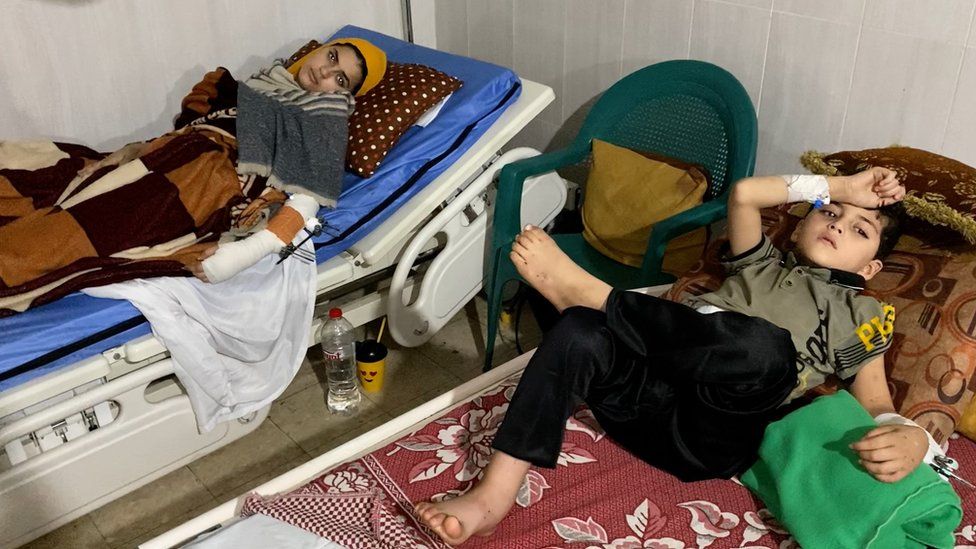-

-
-
Loading

Loading

The children of al-Aqsa hospital in Gaza do not view the death toll in thousands like others do. Their grief is more personal. They count their losses in the faces of their loved ones who have disappeared in the midst of war and destruction. One of these children is thirteen-year-old Rama Zaqout. She was sleeping when an Israeli missile struck the mosque where her family was seeking shelter. When she woke up in the hospital, she discovered that her two-year-old brother Hisham and several other family members had died. In a detached voice, she lists the names of her deceased family members, including her grandparents, aunt, cousins, and her pregnant cousin's young daughter. While Rama survived, she sustained severe injuries to her hand and leg. Unfortunately, the hospital lacks the necessary resources to properly treat her wounds. She fears that if she is not evacuated from Gaza, both limbs might have to be amputated. Rama used to enjoy running and drawing, but now she dreams of a normal life where she can indulge in those hobbies again. In the same hospital, there is another girl, approximately ten years old, strapped into a medical brace with a serious back injury. She is given Barbie dolls and a plastic tiara to play with, symbols of a world that no longer exists in a place ravaged by death and injuries. Though she has a doll in her hands, she seems determined to isolate herself from the war-torn reality around her. Outside the hospital, the constant sounds of military aircraft and explosions fill the air. For 24-year-old Tala Abu Nahel, who lives with nine other families in Rafah, survival feels like a matter of luck. Tala tried to escape Gaza with her severely disabled brother but was unsuccessful due to lacking foreign passports. Her brother's condition has worsened without access to medication, and they both live under constant threat of attack. Tala vividly explains the psychological toll of living on the edge of danger. Each time she hears a rocket or bomb, she experiences relief that it is not targeting their location but remains aware that they are far from being completely safe. Tala's hope is diminishing, and she fears becoming another statistic among the thousands of lives lost. Yazid, Tala's disabled brother, sits in his wheelchair in the garden, constantly glancing at the drones hovering above. Tala comforts him by stroking his hand. The situation in Gaza has only worsened over the past 70 days, leaving Tala feeling hopeless and fearful of becoming another casualty. For the people of Gaza, grief and fear have become their daily reality. They are constantly on the move, seeking safer places to hide. Every border is closed to them, and they are trapped in this desperate situation. Each day, they mourn their dead and witness funerals of people of all ages, shrouded in white or wrapped in plastic bags. At the Nasser Medical Complex, a young boy desperately clings to the lifeless body of his father, unable to bear the pain. He is eventually pulled away, and the bodies are taken away for burial. Unless a cease-fire is declared, these mourning rituals will continue to repeat, with different families experiencing the same heartbreak in this small place.